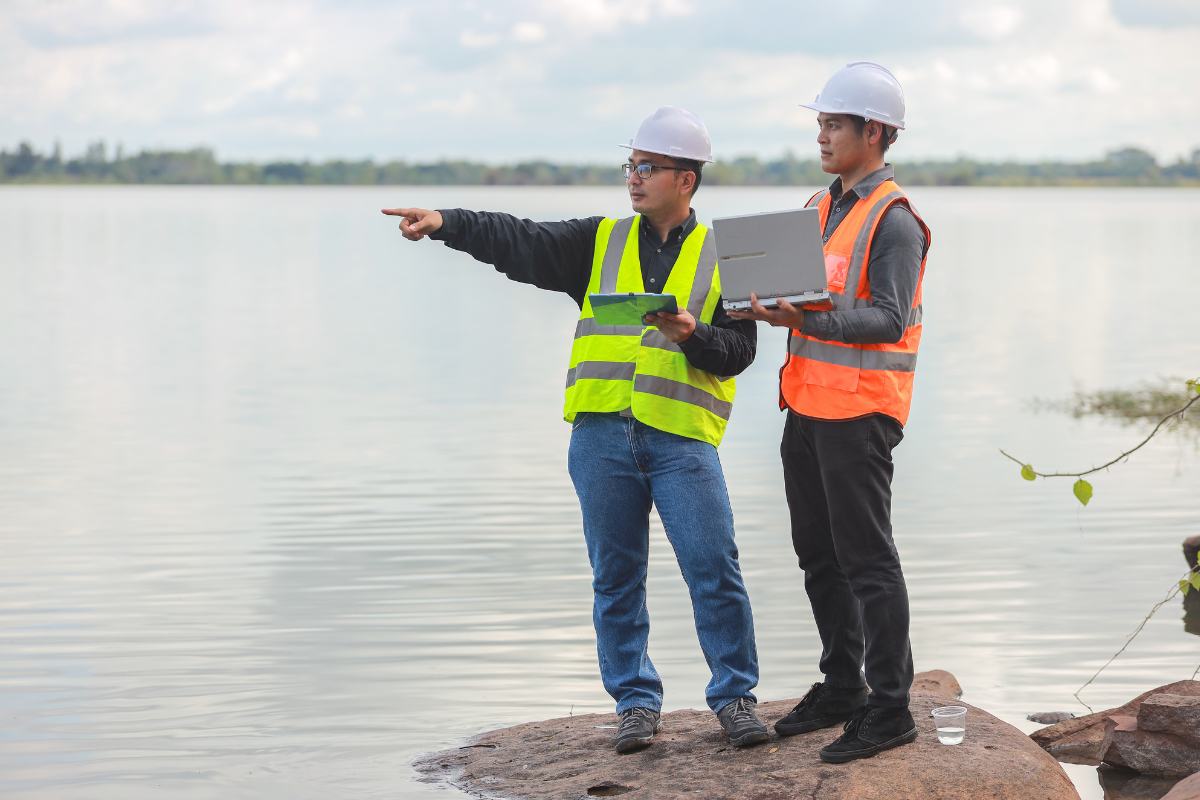In an era where environmental concerns are rapidly escalating, businesses are increasingly under the microscope for their contributions to climate change, pollution, and resource depletion.
Stakeholders, from consumers to investors, are demanding not just profitability but also responsibility towards the planet.
This is where environmental engineering comes into play—a discipline focused on developing technologies and practices that mitigate the adverse impacts of human activity on the environment.
Whether it’s wastewater management, renewable energy integration, or waste reduction, environmental engineering is the backbone of sustainability in the corporate world.
Post Contents
- 1 The Basics Of Environmental Engineering
- 2 Business And The Environmental Footprint
- 3 The Crucial Role Of Environmental Engineering In Risk Mitigation
- 4 Incorporating Underground Storage Tank Removal Services
- 5 A Competitive Edge In The Market
- 6 A Win-Win For All Stakeholders
- 7 The Social Imperative: Community and Employee Well-Being
- 8 The Role Of Technology In Environmental Engineering
- 9 Looking Ahead: The Future Of Business Is Green
- 10 Conclusion
The Basics Of Environmental Engineering
Environmental engineering combines the principles of biology, chemistry, and engineering to create solutions to environmental issues.
This discipline is multi-faceted, covering a range of concerns, including air and water pollution control, waste disposal, and public health.
Businesses can leverage the expertise of environmental engineers to adapt their operations for greater sustainability, reduce their environmental footprint, and conform to environmental laws and guidelines.
With benefits like reduced operating costs and improved stakeholder relations, environmental engineering is no longer an option but a necessity for responsible businesses.

Business And The Environmental Footprint
Most modern businesses have complex operations that can leave a significant environmental footprint.
From manufacturing processes that release hazardous materials into the air and water, to extensive energy consumption that exacerbates global warming, businesses are often unwitting culprits of environmental degradation.
As regulatory frameworks become increasingly stringent, businesses risk facing heavy fines, legal repercussions, and tarnished reputations if they fail to meet environmental standards.
The Crucial Role Of Environmental Engineering In Risk Mitigation
Environmental engineers help businesses identify potential environmental hazards and design appropriate mitigation strategies.
For example, many industrial processes release effluents that could be harmful to the environment.
An environmental engineer can assist in redesigning these processes or treating the effluents to make them less harmful.
The aim is to strike a balance between operational efficiency and environmental stewardship, ensuring that the business’s actions are not only compliant with laws but also ethically responsible.
Incorporating Underground Storage Tank Removal Services
One concrete example of how environmental engineering can play a critical role in business responsibility is underground storage tank (UST) removal.
Over the years, businesses in industries like petroleum, chemicals, and manufacturing have used underground storage tanks for storing hazardous materials.
As these tanks age, the risk of leaks increases, posing significant environmental and public health risks.
Inefficiently managed or outdated tanks can lead to soil and groundwater contamination, with heavy financial and legal repercussions for businesses.
If you’re looking to understand how critical this issue can be and what solutions are available, it’s worth contacting specialized underground tank removal contractors for expert risk assessment, customized remediation plans, regulatory compliance guidance, and long-term cost savings.
The process not only saves the business from legal trouble but also reaffirms its commitment to safeguarding the environment.
A Competitive Edge In The Market
Businesses that invest in environmental engineering often find themselves with a competitive edge.
The modern consumer is more environmentally conscious and prefers to associate with brands that show responsibility towards the planet.
A commitment to sustainable practices, backed by environmental engineering, can be a strong selling point that sets a company apart in the crowded marketplace.
A Win-Win For All Stakeholders
In the end, the emphasis on environmental engineering creates a win-win situation for all stakeholders involved.
Businesses can maintain profitability while adhering to environmental regulations. Investors see reduced risks and higher returns on businesses that are sustainable in the long run.
The community benefits from a cleaner, safer environment. And the planet gets a much-needed reprieve from the relentless pressure of human activity.
The Social Imperative: Community and Employee Well-Being
It’s not just the environment that benefits from responsible business practices; the well-being of the community and employees is directly influenced as well.

For example, reducing emissions not only has a global impact on climate change but also improves local air quality, which has public health implications.
Cleaner water bodies mean safer drinking water and a reduced burden on public health systems.
Employees, too, appreciate working for socially responsible companies. Improved sustainability often correlates with a safer work environment, which can lead to higher job satisfaction and better retention rates.
Thus, the application of environmental engineering solutions directly supports the quality of life for both the community at large and the individuals within a business.
The Role Of Technology In Environmental Engineering
The advancements in technology are providing businesses with tools that make it easier to implement environmental engineering solutions.
Sophisticated software can now track energy consumption in real-time, helping to identify wasteful practices.
Innovations like AI and IoT sensors can monitor conditions in harsh or dangerous environments, providing data that engineers can use to create safer and more efficient systems.
Companies can also leverage blockchain technology to ensure the transparency and traceability of their sustainability efforts.
With real-time monitoring and data analytics, businesses can make data-driven decisions that align with both profitability and sustainability goals.
Looking Ahead: The Future Of Business Is Green
The world is at a pivotal moment where action today can shape the environmental landscape of tomorrow. Businesses have a significant role to play in this.
As they are major users of resources and emitters of waste, the decisions they make can have a far-reaching impact.
Leveraging the principles and techniques of environmental engineering, companies have the opportunity to lead by example.
They can demonstrate that profitability and responsibility aren’t mutually exclusive but can coexist harmoniously.
Conclusion
In summary, environmental engineering is not just an ethical choice but a smart business strategy.
From risk mitigation, like the removal of underground storage tanks, to creating sustainable operational practices, this discipline ensures that a business can thrive without compromising the environment.
The integration of environmental engineering into business models is no longer just an ‘extra’ but a fundamental aspect of corporate responsibility and long-term viability.
By embracing environmental engineering, businesses are not only securing their future but also playing a role in safeguarding our planet for generations to come.






























